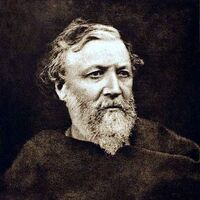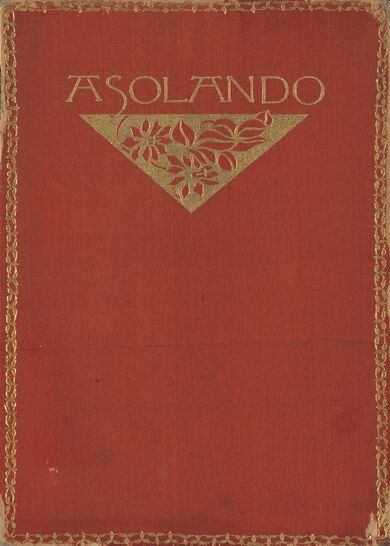Asolando: Prologue
“THE Poet’s age is sad: for why?
In youth, the natural world could show
No common object but his eye
At once involved with alien glow—
His own soul’s iris-bow.
“And now a flower is just a flower:
Man, bird, beast are but beast, bird, man—
Simply themselves, uncinct by dower
Of dyes which, when life’s day began,
Round each in glory ran.”
Friend, did you need an optic glass,
Which were your choice? A lens to drape
In ruby, emerald, chrysopras,
Each object—or reveal its shape
Clear outlined, past escape,
The naked very thing?—so clear
That, when you had the chance to gaze,
You found its inmost self appear
Through outer seeming—truth ablaze,
Not falsehood’s fancy-haze?
How many a year, my Asolo,
Since—one step just from sea to land—
I found you, loved yet feared you so—
For natural objects seemed to stand
Palpably fire-clothed! No—
No mastery of mine o’er these!
Terror with beauty, like the Bush
Burning but unconsumed. Bend knees,
Drop eyes to earthward! Language? Tush!
Silence ’tis awe decrees.
And now? The lambent flame is—where?
Lost from the naked world: earth, sky,
Hill, vale, tree, flower,—Italia’s rare
O’er-running beauty crowds the eye—
But flame? The Bush is bare.
Hill, vale, tree, flower—they stand distinct
Nature to know and name. What then?
A Voice spoke thence which straight unlinked
Fancy from fact: see, all’s in ken:
Has once my eyelid winked?
No, for the purged ear apprehends
Earth’s import, not the eye late dazed.
The Voice said, “Call my works thy friends!
At Nature dost thou shrink amazed?
God is it who transcends.”
Asolo: September 6, 1889.


